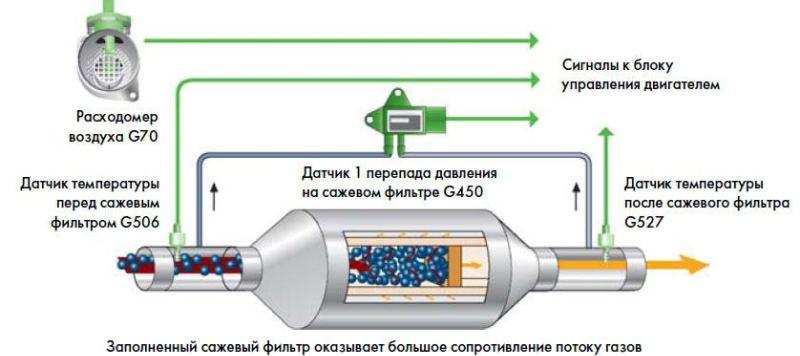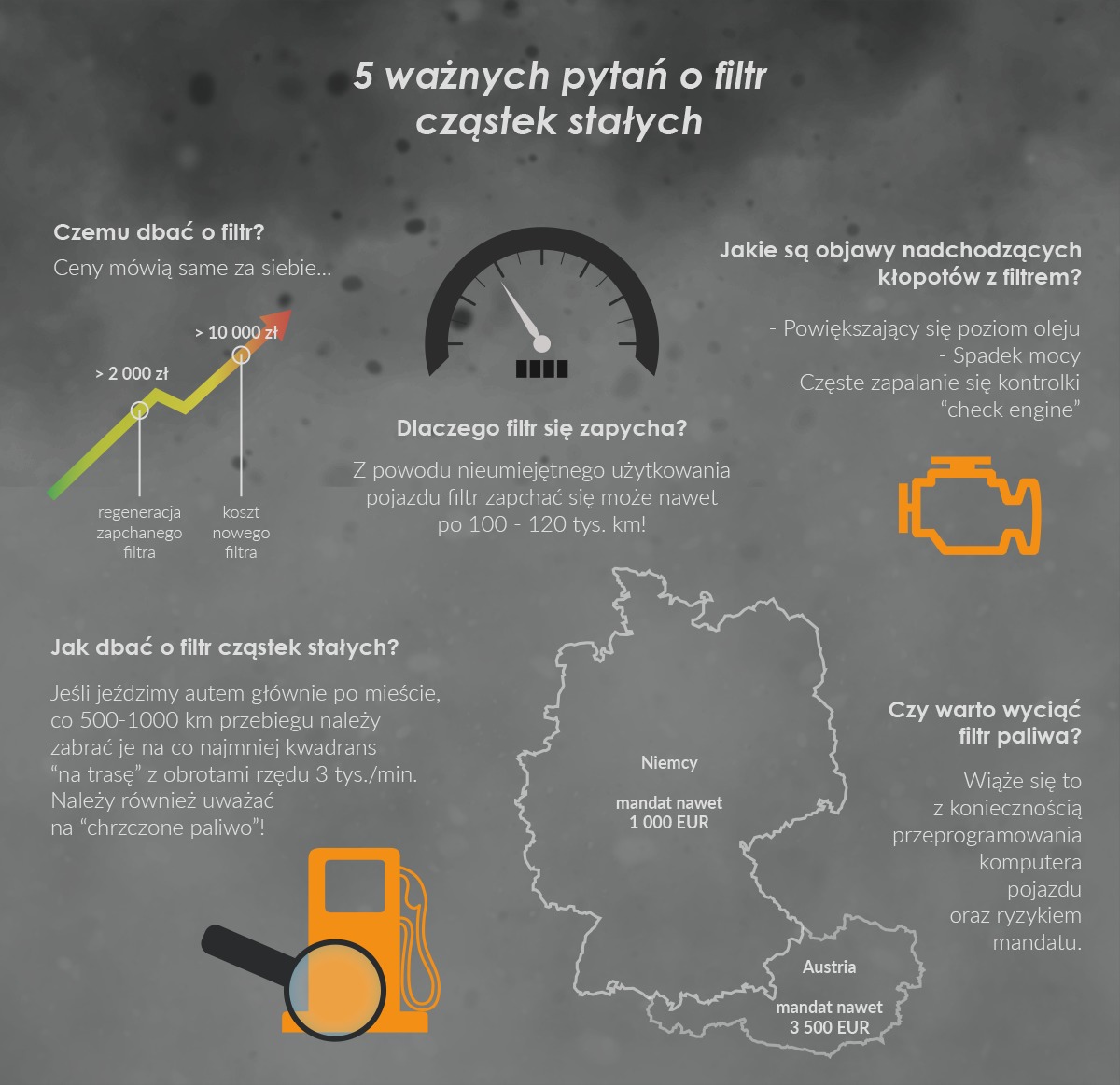
5 important questions about the particulate filter
 It is better to read about the particulate filter for free than to replace it prematurely for a few thousand zł.
It is better to read about the particulate filter for free than to replace it prematurely for a few thousand zł.
The particulate filter is a component fitted to most diesel vehicles introduced in the XNUMXth century. It got on board our cars along with the tightening of environmental regulations. Its task is to filter exhaust gases and stop soot and ash. We usually find it under the names DPF filter (diesel particulate filter) or FAP filter (filtre à particles).
Why should you care for a particulate filter?
The particulate filter sooner or later becomes clogged or wears out. The cost of a new one can be up to 10 thousand. złoty or more. The prices of substitutes, as a rule, also amount to thousands of zlotys. Regenerating a clogged filter also often costs more than $2. zloty.
Why do filters get clogged?
First of all, because drivers do not know how to care for this element and their behavior leads to its premature wear. This can happen even after 100 or 120 thousand. km run.
In addition, the particulate filter is a relatively new component in the automotive industry. As a result, the automotive industry has not yet had time to develop more reliable solutions. Conspiracy theorists, however, argue that the filters are made on purpose, not very durable, so that customers can then be "crossed out" for replacing them.
What are the symptoms of an impending particulate filter problem?
The sooner we realize we're about to run into DPF/FAP issues, the better. We will have more time to find a new filter at a good price or choose a regeneration company. When the filter is still running, we can select offers and accept even distant dates. As problems worsen, our flexibility will decrease. Then the rules of the market will apply. We will have to pay more to resolve the issue quickly.
So, what should you pay special attention to? A cause for concern may be the increase in oil level associated with automatic active filter regeneration. One of its elements is the supply of more fuel. Since it does not burn completely, it enters the oil, diluting it and raising its level. This situation occurs when active regeneration is triggered too frequently, for example due to habitual city driving and high filter wear.
Another situation when the signal light should light up is a decrease in power. While many of us won't detect a drop in top speed too quickly, lower acceleration capabilities should be easy to diagnose for any driver. So when the acceleration is worse than before, it's a sign that our filter is going to give up in the near future.
Also, do not underestimate the situation in which the check engine light often lights up. This can also be a sign of a bad diesel particulate filter.
How to care for a particulate filter?
Although particulate filters are also increasingly found in petrol units (like the GPF, petrol particulate filter), they are the prerogative of diesels. And diesels are designed based on mileage. Such “typed” mainly on the road, on highways and expressways, and not in cities. Even if we intend to drive our car mainly in the city, remember that in order for the particulate filter to work well, you need to let it work from time to time in the conditions for which it was created. Therefore, every 500-1000 km of run we will take the car to the route, where for more than a quarter of an hour we will be able to maintain a constant speed at a level that requires a diesel engine speed of 3 rpm. During such driving, the filter is automatically cleaned (so-called passive regeneration).
If we don't want to spend a few thousand zlotys on a new filter too quickly, we shouldn't save zlotys on fuel or oil. Fill the diesel engine with a diesel particulate filter with a quality oil, preferably recommended by the vehicle manufacturer. It should be low in potassium, phosphorus and sulfur.
See also: Check VIN for free
Let's also fill up with decent fuel at solid stations. It is worth checking out the annual reports of the Office of Competition and Consumer Protection, which present the results of gas station inspections. You may find that our favorite station is on the black list, offering "christened" fuel to customers! Contrary to appearances, it also receives branded stations.
In everyday use of the car, avoid driving short distances and pressing the accelerator pedal too dynamically at very low revs.
Should I cut the fuel filter?
There are a lot of people in Poland who want to prove that they know more about the automotive industry than the engineers working in car concerns. Such people say that if the particulate filter fails, it makes no sense to bother with its replacement or regeneration. “When a tooth ached, I pulled it out,” we will hear from such a specialist along with a proposal to get rid of the particulate filter. After cutting it out, it is necessary to reprogram the on-board computer so that the machine "thinks" that the filter is still on board and works normally. As you might guess, mixing software like this isn't risk-free. Plus, it's not a cheap service. Worse yet, its fans must consider the risk of being fined. Of course, the fine will be paid by the driver, and not by the one who hit the filter.
When we go on a trip to Germany or Austria with the DPF/FAP filter cut out, the local police can meet us with a fine from 1000 euros (Germany) to 3,5 thousand. euro (Austria). We cannot feel unpunished in Poland either. After all, our car will no longer meet the standards of toxicity of exhaust gases. So we can “drop in” under close police control.
promotional material